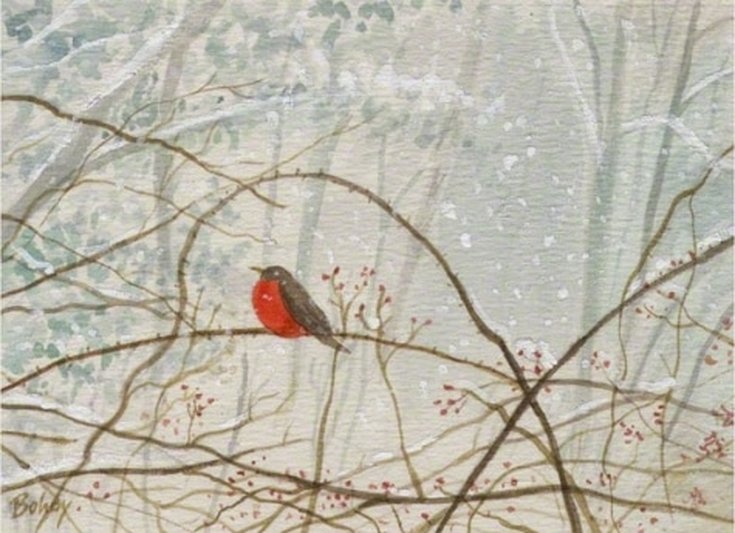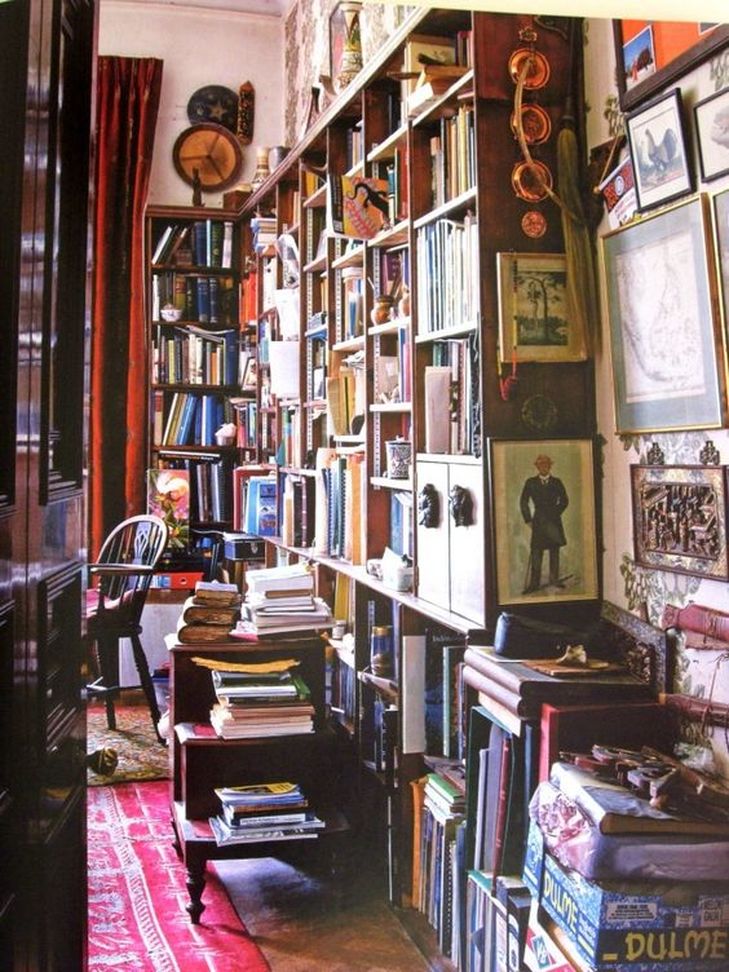|
"You're turning the pages and a very strange - and very nice - thing dawns on you. This book gets you. Obviously the author (who might have died centuries back) never knew you at all. But they write as if they did. It's as if you'd confessed your secrets to them and then they'd gone off and written this work around what you'd told them -transformed, of course, into a story about people with different names or into an essay that doesn't cite your case explicitly, but might as well do so, because it's completely on target." The School of Life, Small Pleasures
1 Comment
"Life is sacramental: the outward signs reveal the inward grace. The outward sign of bread and wine at this altar are what they are — real bread from the earth and wine, the fruit of the vine — and yet they are revelatory of more, of Jesus’ real presence. That sacramental principle is a template for life. The whole of life is intended to be like that: sacramental. It is what it is, and yet it is symbolic of something more, a channel of revelation." Br. Curtis Almquist SSJE
"( A Parenthesis here about quotations and credits. I was taught in college how to footnote, ow to give credit where credit is due, and in the accepted, scholarly way. But most of the writers I want to quote in this book are writers whose words I've copied down in a big brown, Mexican notebook, what is called a commonplace book. I copy down words and thoughts upon which I want to meditate, and footnoting is not my purpose; this is a devotional, not a scholarly notebook. I've been keeping it for many years, and turn to it for help in prayer, in understanding. All I'm looking for in it is meaning, meaning which will help me to live life lovingly, and I am only now beginning to see the usefulness of noting book title and page, rather than simple jotting down, 'Francis of Assissi.')"
Madeleine L'Engle, Walking on Water: Reflections on Faith and Art "If I have noticed anything remarkable, it is that the extraordinary lies within the ordinary. Go but a step beneath, beyond , the common experience and you find the uncommon. In the secular, you come upon the sacred. The finite is of a piece with infinity." - Abbie Graham
"Mulleins and Mulleins" Large, placid mulleins, as summer advances, velvety in texture, of a light greenish-drab color, growing everywhere in the fields-at first earth's big rosettes in their broadleav'd low cluster-plants, eight, ten, twenty leaves to a plant-plentiful on the fallow twenty-acre lot, at the end of the lane, and especially by the ridge-sides of the fences- then close to the ground, but soon springing up-leaves as broad as my hand, and the lower ones twice as long-so fresh and dewy in the morning-stalks now four or five, even seven or eight feet high. The famers, I find, think the mullein a mean unworthy weed, but I have grown to a fondness for it. Every object has its lesson, enclosing the suggestion of everything else-and lately I sometimes think all is consecrated for me in these hardy, yellow-flower'd weeds. As I come down the lane early in the morning, I pause before their soft wool-like fleece and stem and broad leaves, glittering with countless diamonds. Annually for three summers now, they and I have silently return'd together; at such long intervals I stand or sit among them, musing-and woven with the rest, of so many hours and moods of partial rehabilitation-of my sane or sick spirit, here as near at peace as it can be. - Walt Whitman, Specimen Days twenty + robins in my trees eating leftover crabapples and bittersweet in a snowstorm (One Hundred Days of Keeping is born.)"What sort of diary should I like mine to be? Something loose knit and yet not slovenly, so elastic that it will embrace any thing, solemn, slight or beautiful that comes into my mind. I should like it to resemble some deep old desk, or capacious hold-all, in which one flings a mass of odds and ends without looking. I should like to come back, after a year or two, and find that the collection had sorted itself…into a mould, transparent enough to reflect the light of our life and yet steady, tranquil composed with the aloofness of a work of art."
-Virginia Woolf "The Story
It (the story) feeds and enriches the life of the spirit, enlarging the hearers' and teller's experiences, and the story teller must ever bear his high calling in mind. There should surely be no more splendid mission, yet we still find that small reasons and aims are offered for the telling of stories...they are to give information, to cultivate the habit of concentration;...to form a basis for composition and other language exercises...to be a peg on which to hang various school activities. Let us be simple and wise and honest enough to to tell the story for the pure love of telling it, for 'it is in beauty and love and joy and laughter that we must find the way of speaking to the soul--the soul that does not appear in the statistics and is therefore always left out of the accounts.'" W.A. Bone "There was almost nothing in the kitchen to work with. It was interesting to try to cook without all the tools and supplies that I take for granted in my own kitchens. While I was in Le Truel, I kept wishing with real regret that I were capable of living in such continued simplicity. But I am not. Sometimes I honestly want to live in a plain room with a narrow bed, a chair, a table. But then I would need a bookcase. I would see a poster I must put on the wall. I would pick up a shell here, a bowl or vase there, another poster, enough books for two bookcases, a soft rug someone might give me--and where would the first plainness be? I cannot fight too hard against it, but I regret it." --M.F.K. Fisher OR "Mr. Gwinne's library resembled a clearing in a forest, but the open space was by no means uncluttered, having a minor undergrowth of books piled on the floor, like the stumps of felled trees. Around the clearing great bookcases loomed from floor to ceiling, dark but yet alive with a glint of gold or crimson here and there, as though light shone faintly through massed leaves, and ominous with a motionless power. The light in the room was dim and green because of a creeper outside the window. It softly illumined Mr. Gwinne's bald head, bent over a writing table stacked with books and papers. He would have nothing touched on his table and a pleasing silver lichen of dust grew all over it. His bald head, Lucy thought, looked like a mushroom." --Elizabeth Goudge (thanks Chris) "Every day, from early spring to late fall, she made a little wander around her house and yard to see what was coming up or getting ready to bloom or blooming." -Wendell Berry
|
"Ideas
|
"Perhaps this is one of the secrets of life--to know 'glory' when we see it."
--Charlotte Mason
Virtual Life?
A wee explanation: this website was created as a way to amplify the daily surprise of seeing glory in one small life. The notebook entries represented here are all selected from things actually lived and noted on paper in an effort to live the full life British educator Charlotte Mason so ably championed.
Photos chosen are linked to their original posts in most cases because I have found something of value there and hope my readers will likewise find a helpful resource. In the case of miss-attribution or if you desire your work not be linked, please let me know.
Categories
All
Book Of Centuries
Book Of Firsts
Church Year
Commonplace
Copywork
Enquire Within
Fortitude Journal
Gratitude Journal
Keeping
Music Notebook
Nature Notebook
Notebooks
Picture File
Poetry
Prayer Journal
Recipes
Zeitgeist





 RSS Feed
RSS Feed
